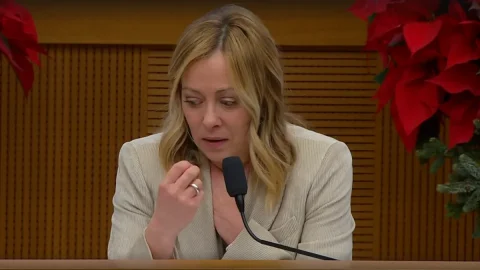"Eight francs for two coffees?" A couple of Italian tourists look perplexed at the receipt, sitting at a table in one of the many small restaurants scattered around the Engadine. Yet the price of the coffee is the same as last year, it hasn't changed. What has changed is the perception of the Swiss franc: so far a price that seemed high translated into euros appeared immediately accessible. Go out to a restaurant one night and pay 80 francs for dinner? Before they were just over 50 euros, today they are 80 euros. Better to stay at home to eat, we hear from many that they have homes. And the others? Some have changed their plans and stayed in the euro area, others have shortened their stay, many arrive by bus, take a tour of Saint Moritz, stop in front of the Palace hotel where an old Jaguar and a Rolls Royce, take a trip on the cable car and then leave to sleep elsewhere.
This is a bit like the summer of 2011 in the Engadine, one of the best known and most visited Swiss valleys by tourists, alongside the Valtellina. There are many hotels only half full, vacant houses, half-empty shops, signs with the writing "zimmer frei" as early as mid-August (a novelty for these places), restaurants where there is always room when last year it was essential reserve.
Not even this part of the end of August, with incredibly beautiful weather, will probably be able to revive the fortunes of an unhappy season. All the fault of the franc? Definitely not, but the aggressions of the markets, the economic storms, the specter of recession (also in Italy) have played an important role. To which must be added a month of July, usually very sunny in the Engadine, which this year was dominated by bad weather and convinced many to change their plans.
The real estate market appears unscathed, at least for now, by the revaluation of the franc (which in eight months went from 0,80 cents per euro to almost parity with the European currency). “House prices have not dropped, even if the offer is still high, a lot has been built and some builders still have several houses on the hunchback – explains Laura Pedone Marzotto, an architect who has worked a lot in the Engadine for years -. People are watching, there is no big rush. Beautiful things always cost a lot – she adds – travel costs over 20 francs per square metre. Then there are many bad things, which however cost a little less”. In fact, a lot has been built in the Engadine in recent years, the prospect of cashing in unexpected amounts of money by selling land that was previously "unused" (and always finding who was ready to buy) worked like a siren song, which no one knew how to resist. Now the Municipalities of the Upper Engadine, including Saint Moritz, Pontresina, Celerina and so on, have decided to put a stop to this reckless race which risks turning into a "bubble".
Going back to the consequences of the strong franc (or overvalued, as the Swiss say, who tend to blame everything on the euro), apart from the fact that you see few people around, the question that many are asking, even at local or cantonal institutions, is this: why aren't operators reacting? Someone did it: a residence that hosted a couple of "old" Italian customers for 14 days in August, made them pay only ten days: "And to think _ they commented in surprise - that once upon a time if we broke a simple dish we'd they paid for it!" But examples are very few.
Some consumer associations have taken action to obtain a reduction in prices: in the canton of Ticino four large distribution chains, Migros, Coop, Manor and Bennet, have cut the prices of some consumer products (also to avoid the race, which has already begun , of the Swiss shopping in Italy). Not only. Migros was also able to obtain a reduction in the cost of imported products by rejecting those importers who did not intend to adjust their margins.
There is room for lowering the prices of tourism-related services: in the first place, because many hotels make purchases in Italy or in any case abroad (for example, the fish arrives from Milan every morning, the fruit mainly comes from abroad), then because the workforce is almost entirely foreign and therefore benefits from a strong increase in the value of its income. Precisely for this reason, in other sectors, negotiations are underway with the unions to introduce, for equal wages, the possibility of working a few more hours, on a voluntary basis.
At the moment, rather than thinking about reducing prices and innovating the offer, Swiss hoteliers seem concentrated on asking the Government to reduce VAT to 2,5% (against a general average of 8%).
The real litmus test, however, will be the winter season: if the currency situation does not change, it will be seen whether tourists will choose other destinations in the euro area, such as Austria, which many Swiss look to, or whether they will return to crowd the fascinating valley of the Inn Much will also depend on hotelier policies.





